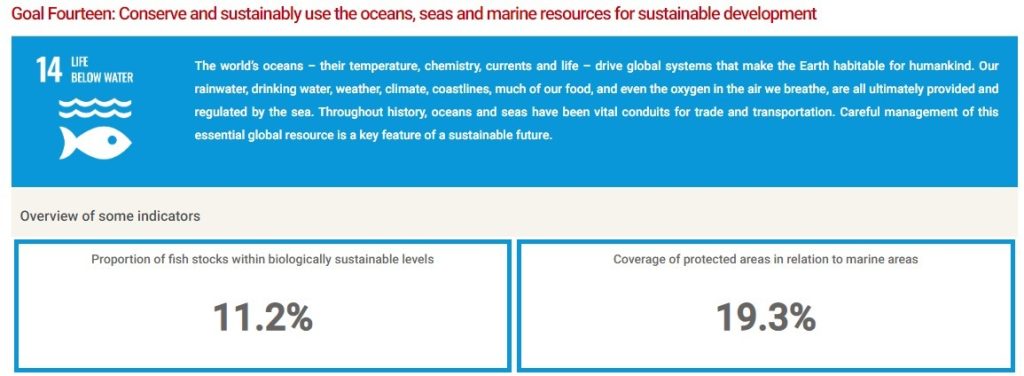SDG 14 - Life Below Water
The University contributes to SDG 14: Life Below Water through its research efforts, beach cleaning campaigns, and community engagement. Recognizing the importance of marine ecosystems, the university conducts research to enhance understanding and conservation of underwater environments. Additionally, the University organizes regular beach cleanups, involving students and local communities, to remove litter and prevent it from harming marine life. By combining research, beach cleaning, and community involvement, the university demonstrates its commitment to protecting and preserving life below water.
Gulf University is committed to contributing to SDG 14: Life Below Water, while recognizes the critical importance of marine ecosystems and the urgent need to protect them. In line with SDG 14: Life Below Water, the university is committed to contributing to the conservation and sustainable use of oceans, seas, and marine resources. Through research initiatives, the university seeks to deepen the understanding of marine ecosystems and develop solutions to protect them. Regular beach clean-up campaigns, involving students, staff, faculty and the community, help remove marine debris and prevent harm to marine life. By promoting sustainable practices and raising awareness, the university aims to inspire future generations to become stewards of the ocean and its resources. the university is committed to contributing to the conservation and sustainable use of oceans, seas, and marine resources.
The Government of Bahrain is committed to conserve and sustainably use the oceans, seas and marine resources for sustainable development. Bahrain has made significant developments in environmental protection and marine biodiversity conservation. The Environment Law of 2022 provides a robust legal framework for environmental protection, while CITES legislation helps combat wildlife trafficking. The country has established protected marine areas and implemented seasonal fishing regulations to safeguard marine ecosystems. Bahrain’s commitment to mangrove conservation is evident in its ambitious target to quadruple mangrove coverage by 2035, with substantial progress made in recent years. These initiatives demonstrate Bahrain’s dedication to environmental sustainability and the preservation of its natural resources. These initiatives are explained in detail as follows:
Legislative Protection
The Environment Law No. (7) for the year 2022 aims to protect the environment and its sources from all activities and practices causing pollution. Furthermore, under Bahrain’s national CITES legislation Law No. (5) of 2021, the Kingdom introduced licensing programs for endangered wild species that contribute to combating their smuggling and trafficking, in cooperation with the security services and customs at land, sea, and air borders, in addition to strengthening the control program on markets and land and sea environments. Bahrain has seven protected areas (six of which are marine areas) considered important to marine life, including Najwat Bulthama; one of Bahrain’s most vibrant coral beds. Seasonal fishing was introduced for certain species of fish and shellfish to protect their population numbers. Bahrain has protected several species of fish from the threat of fishing and unlawful capture such as dolphins and some species of sharks.
Marine Biodiversity
Marine Biodiversity The Kingdom of Bahrain announced, in 2021, its commitment to quadruple the mangrove coverage across coastal areas by the year 2035, part of its plan to achieve net-zero by 2060 and preserve marine life. In June 2023, His Royal Highness the Crown Prince and Prime Minister announced the doubling of the previously announced target of planting 230,000 mangroves in 2023 to 460,000, in an effort to further accelerate the plans. In 2022, Bahrain successfully planted 110,000 mangroves. Efforts have continued throughout 2023, with the 100,000-mangrove seeding planted in May.
Bahrain efforts for SDG 14

Last Updated on November 6, 2025 @ 03:26:31 pm

